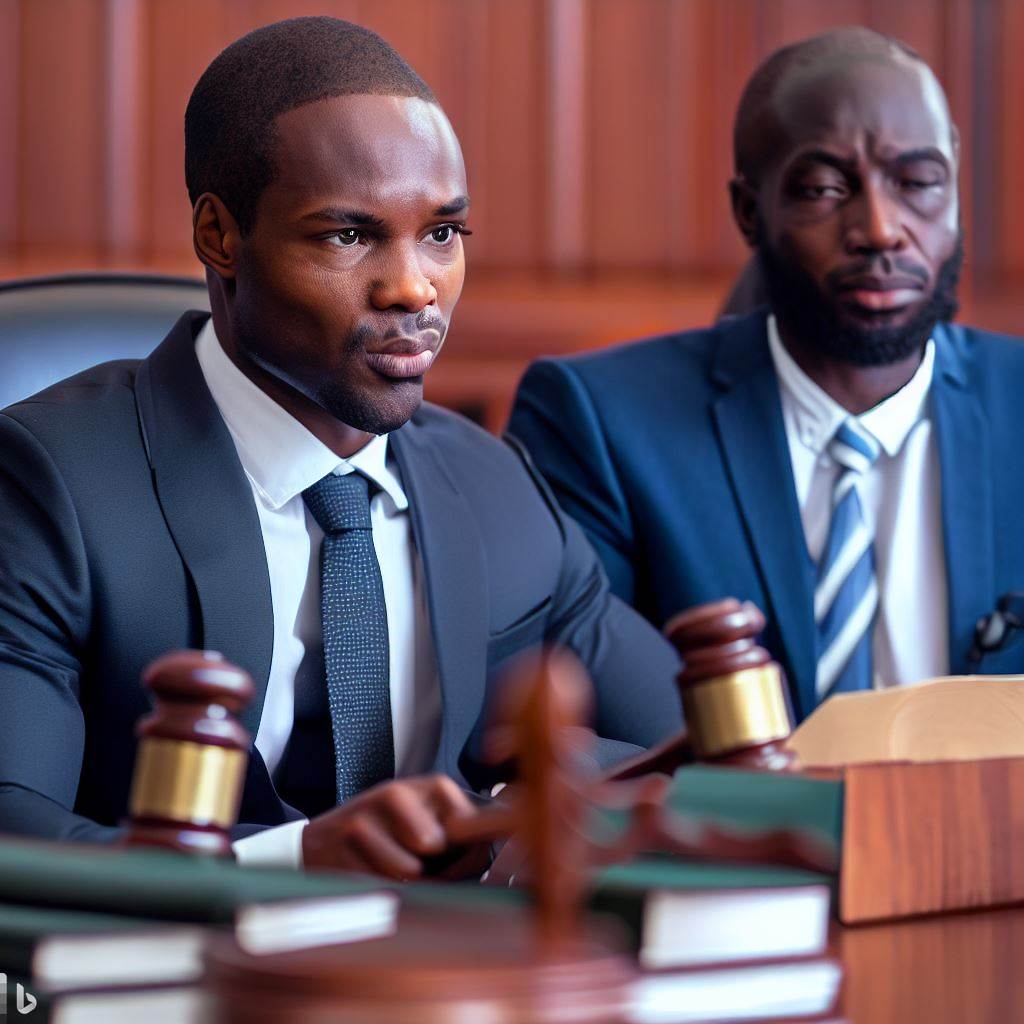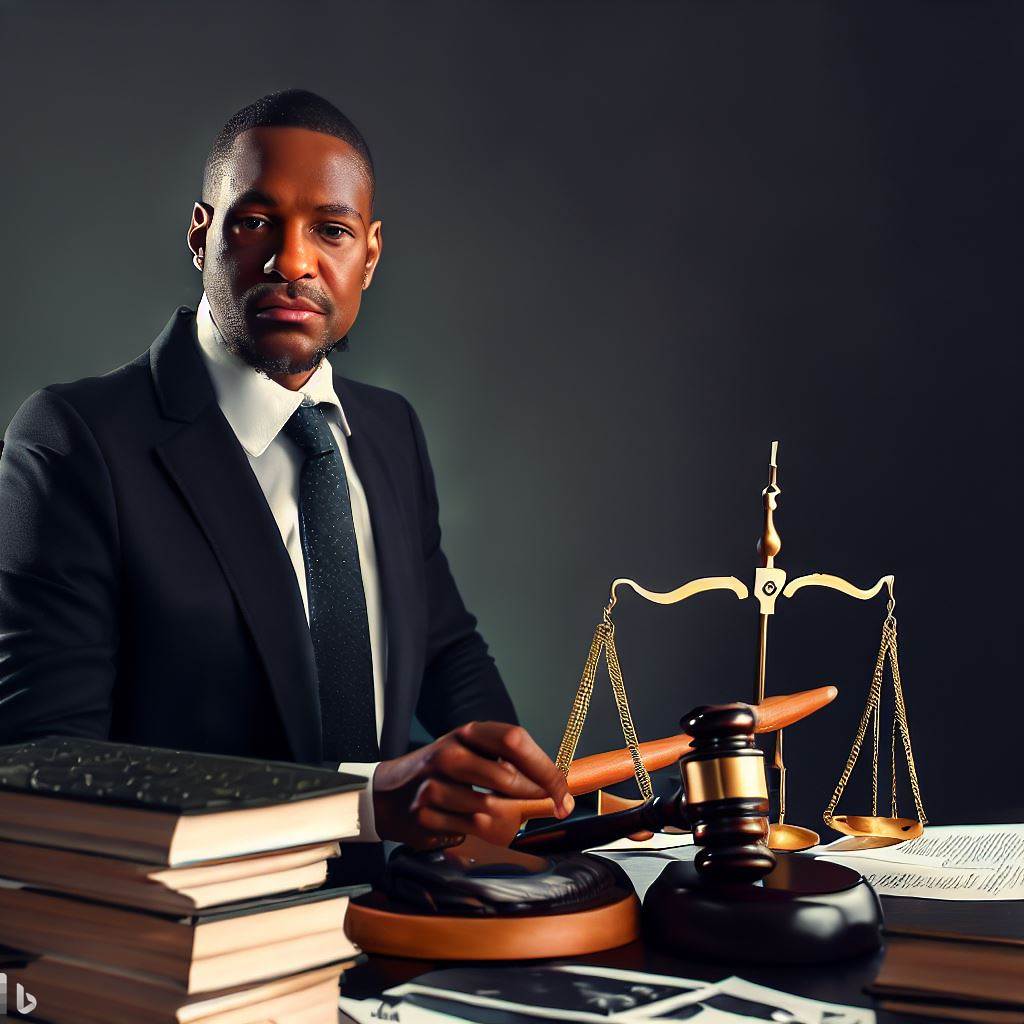Introduction
A. Brief Overview of Nigeria’s Entertainment Industry
Nigeria boasts a vibrant entertainment sector, spanning music, film, fashion, and more.
B. Importance of Understanding Influential Lawsuits
- Legal Precedents: Studying landmark lawsuits provides insights into industry regulations and legal boundaries.
- Artist Rights: Understanding cases involving copyright infringement safeguards creators’ intellectual property.
- Industry Evolution: Lawsuits reflect the industry’s growth, adaptation, and response to emerging challenges.
- Contractual Dynamics: Examining contract disputes aids in drafting fair agreements for artists and stakeholders.
- Global Impact: Some cases resonate globally, shaping Nigeria’s image in the international entertainment arena.
Exploring these lawsuits illuminates the industry’s intricacies and underscores its significant legal intersections.
Overview of the Nigerian Entertainment Landscape
A. Growth and contributions of the entertainment industry
- The Nigerian entertainment industry has experienced tremendous growth in recent years.
- It has become a major contributor to the country’s economy.
- The industry encompasses a wide range of sectors, including music, film, television, and comedy.
- The growth of the industry has led to the creation of numerous job opportunities.
- It has also provided a platform for talented individuals to showcase their skills and creativity.
- The entertainment industry has not only entertained the Nigerian population but has also gained international recognition.
B. Key players in the Nigerian entertainment industry
- Nollywood, the Nigerian film industry, is one of the key players in the entertainment sector.
- It is the second-largest film industry in the world, producing thousands of films annually.
- Nigerian musicians have also made significant contributions to the entertainment industry.
- Artists such as Wizkid, Davido, and Burna Boy have gained global recognition.
- These musicians have also collaborated with international artists, expanding their reach.
- Comedians like Basketmouth and Ali Baba have carved a niche for themselves in the entertainment industry.
- They have brought laughter to the Nigerian audience through their stand-up comedy shows.
- The Nigerian entertainment industry has also witnessed the rise of talented actors and actresses.
- Actors like Genevieve Nnaji and Ramsey Nouah have gained fame both locally and internationally.
Basically, the Nigerian entertainment industry has experienced immense growth and has made significant contributions to the country’s economy.
It encompasses various sectors, including film, music, television, and comedy.
The industry has provided job opportunities and a platform for talented individuals to showcase their skills.
Nollywood, Nigerian musicians, comedians, and actors are some of the key players in the industry, both locally and internationally.
With its continuous growth and recognition, the Nigerian entertainment landscape is poised for even greater achievements in the future.
Read: Roles and Responsibilities of Lawyers in Nigeria
Understanding the Concept of Influential Lawsuits
A. Definition and significance of influential lawsuits
Influential lawsuits can be defined as legal cases that have a significant impact on the development and direction of a particular industry or sector.
These lawsuits have the power to set legal precedents and shape the future of the industry they are associated with.
The significance of influential lawsuits cannot be overstated.
They provide an opportunity for legal and social change, as they often challenge established norms and practices.
These cases have the potential to redefine the boundaries and rules that govern the industry, leading to profound consequences for all stakeholders involved.
B. Impact of influential lawsuits in shaping the entertainment industry
- Copyright infringement cases: Influential lawsuits related to copyright infringement have played a crucial role in shaping the entertainment industry.
These cases highlight the importance of protecting intellectual property and have led to the establishment of stricter copyright laws and regulations. - Contract disputes: Influential lawsuits involving contract disputes have forced industry players to revisit and revise their contractual agreements.
These cases have shed light on the unequal power dynamics within the entertainment industry and have resulted in the implementation of fairer and more transparent contracts. - Censorship and freedom of expression: Influential lawsuits concerning censorship and freedom of expression have challenged the limitations imposed on artists and performers.
These cases have prompted discussions about the balance between artistic freedom and societal restrictions, ultimately shaping the boundaries within which creative expression can thrive. - Royalty disputes: Influential lawsuits regarding royalty disputes have exposed unfair practices within the entertainment industry.
These cases have paved the way for improved transparency and accountability in royalty distribution, ensuring that artists and creators receive their fair share of earnings. - Diversity and representation: Influential lawsuits focusing on diversity and representation have had a transformative impact on the entertainment industry.
These cases have highlighted the need for greater inclusivity and have pushed for more diverse casting choices and storylines, leading to a more representative and inclusive media landscape.
Generally, influential lawsuits play a vital role in shaping the entertainment industry.
By challenging existing norms and bringing about legal and social change, these cases have the power to redefine the boundaries and rules that govern the industry.
From copyright infringement to diversity and representation, influential lawsuits have had a profound impact on the development and direction of the entertainment industry in Nigeria.
Read: Top Law Schools in Nigeria: Preparing for a Legal Career
Case study 1: The Copyright Society of Nigeria vs. Artistes
A. Background and context of the lawsuit
- The Copyright Society of Nigeria (COSON) is a collective management organization that represents the interests of musicians, composers, and other creative artists in Nigeria.
- In 2013, COSON sued several prominent Nigerian artists, including Wizkid, 2face Idibia, and Banky W, for copyright infringement.
- The lawsuit alleged that these artists were using copyrighted material without obtaining the necessary licenses.
B. Key legal issues and arguments presented
- The key legal issue in this lawsuit was whether the artists had infringed upon COSON’s copyrights.
- COSON argued that the artists were using their songs without obtaining permission or paying royalties, which violated their exclusive rights as copyright owners.
- The artists, on the other hand, claimed that they had obtained licenses from other collecting societies and were not obligated to pay royalties to COSON.
C. Impact and outcomes of the lawsuit
- The lawsuit drew significant attention to the issue of copyright infringement in the Nigerian entertainment industry.
- The court ruled in favor of COSON, stating that the artists had indeed infringed upon their copyrights and were liable for damages.
- This ruling set a precedent for future cases involving copyright infringement in the Nigerian music industry and strengthened the position of collective management organizations.
D. Lessons learned from the case study
- This case study highlighted the importance of obtaining proper licenses and permissions when using copyrighted material.
- It emphasized the need for artists and other stakeholders in the entertainment industry to be aware of their rights and obligations under copyright law.
- Furthermore, the case study demonstrated the effectiveness of collective management organizations in protecting the rights of copyright owners in Nigeria.
Read: Requirements for Practicing Law in Nigeria: A Detailed Guide

Case study 2: MTN Nigeria vs. Nigerian Music Copyright Commission
A. Background and context of the lawsuit
- In 2016, MTN Nigeria, a telecommunications company, was sued by the Nigerian Music Copyright Commission.
- The commission accused MTN Nigeria of copyright infringement by allowing the unauthorized use of musical works on their music streaming platform.
- The lawsuit highlighted the ongoing battle between technology companies and copyright holders in the digital age.
B. Key legal issues and arguments presented
- The main legal issue was whether MTN Nigeria was responsible for the copyright infringement that occurred on their platform.
- The Nigerian Music Copyright Commission argued that MTN Nigeria had a duty to ensure that only authorized musical works were available on their platform.
- MTN Nigeria, on the other hand, claimed that they were not responsible for the content uploaded by their users and that they had implemented measures to address copyright infringement.
C. Impact and outcomes of the lawsuit
- The lawsuit raised awareness about the importance of copyright protection in the Nigerian entertainment industry.
- It led to discussions on the liability of technology companies for the actions of their users.
- In 2018, the court ruled in favor of the Nigerian Music Copyright Commission and ordered MTN Nigeria to pay damages for copyright infringement.
- The outcome of the lawsuit served as a precedent for future cases involving copyright infringement and technology companies in Nigeria.
D. Lessons learned from the case study
- The case study highlights the need for technology companies to implement robust measures to prevent copyright infringement on their platforms.
- It emphasizes the importance of clear regulations and legal frameworks to address copyright issues in the digital age.
- The lawsuit also emphasizes the role of copyright holders in protecting their rights and seeking legal remedies when infringements occur.
Read: The Evolution and History of Legal Professions in Nigeria
Discover More: Crucial Tips for Choosing an Entertainment Lawyer in Nigeria
Case Study 3: Nigeria Music Video Awards (NMVA) vs. Broadcasting Organization of Nigeria (BON)
A. Background and context of the lawsuit
- The Nigeria Music Video Awards (NMVA) is an annual event that recognizes outstanding achievements in the music video industry in Nigeria.
- The Broadcasting Organization of Nigeria (BON) is a regulatory body responsible for overseeing broadcasting activities in the country.
- In 2015, a dispute arose between NMVA and BON regarding the rights to broadcast the award ceremony.
- NMVA had entered into a contract with a television station, granting exclusive broadcasting rights for the event.
- However, BON claimed that they had the authority to broadcast the event and accused NMVA of violating broadcasting regulations.
- This led to NMVA filing a lawsuit against BON, seeking a declaration that they had the exclusive rights to broadcast the award ceremony.
B. Key legal issues and arguments presented
- The key legal issue in this case was the interpretation of the contract between NMVA and the television station.
- NMVA argued that the contract clearly granted exclusive broadcasting rights to the television station, which BON was infringing upon.
- On the other hand, BON argued that as the regulatory body, they had the authority to dictate broadcasting rights for such events.
- BON also contended that NMVA failed to comply with broadcasting regulations, further justifying their intervention.
- The court needed to determine whether the contract between NMVA and the television station trumped BON’s regulatory authority.
C. Impact and outcomes of the lawsuit
- The lawsuit between NMVA and BON garnered significant media attention and sparked a debate on the regulatory powers of BON.
- The court ruled in favor of NMVA, stating that the contract between NMVA and the television station was binding and valid.
- As a result, BON was restrained from interfering with the exclusive broadcasting rights of NMVA for the award ceremony.
- This decision set a precedent and reaffirmed the importance of honoring contractual agreements in the entertainment industry.
D. Lessons learned from the case study
- Clear and explicit contracts are crucial in avoiding disputes and misunderstandings in the entertainment industry.
- Understanding the regulatory framework and complying with the relevant regulations is essential for industry players.
- Respecting the exclusive rights granted to an entity is vital to protect intellectual property and commercial interests.
- Legal battles can have a significant impact on the reputation and credibility of parties involved.
- Seeking legal redress is an effective means of resolving disputes in the entertainment industry.
Read: Understanding the Nigerian Legal System: An Overview
You Might Also Like: Entertainment Lawyer vs. Artist Manager: What’s the Difference?
Analysis of Common Themes and Trends in Influential Entertainment Lawsuits
A. Role of intellectual property rights in the Nigerian entertainment industry
Intellectual property rights play a crucial role in protecting the creative works of artists and producers.
Several lawsuits in Nigeria have centered around copyright infringement and unauthorized use of intellectual property.
Artists and producers need to secure proper licenses and register their works to protect their rights and avoid lawsuits.
Infringement cases often involve unauthorized sampling of music, plagiarism, or illegal distribution of copyrighted content.
These lawsuits highlight the need for a robust intellectual property framework and greater awareness among stakeholders.
B. Influence of technology and digital platforms on lawsuits
The rise of technology and digital platforms has revolutionized the entertainment industry in Nigeria.
Social media, streaming services, and online platforms have made content easily accessible to a global audience.
However, this has also led to an increase in legal disputes, particularly related to digital piracy and unauthorized distribution.
Lawsuits involving illegal downloads, streaming, or the unauthorized use of content on digital platforms are becoming more common.
The evolving nature of technology poses challenges for the legal framework and necessitates continuous adaptation to protect artists.
C. Implications for artists, producers, and other stakeholders
The outcome of influential entertainment lawsuits in Nigeria has significant implications for stakeholders.
Artists and producers face financial losses, damage to reputation, and potential barriers to their creative expression.
Proper legal representation and understanding of intellectual property laws are crucial for protecting their rights.
The role of industry associations and collective management organizations is vital in supporting artists and resolving disputes.
Increased awareness and education about legal rights can empower artists and enable them to navigate disputes effectively.
In a nutshell, the analysis of common themes and trends in influential entertainment lawsuits in Nigeria highlights the importance of intellectual property rights, the influence of technology and digital platforms, and the implications for artists, producers, and other stakeholders.
It emphasizes the need for a robust legal framework, greater awareness, and education to protect the rights and creativity of individuals in the Nigerian entertainment industry.
Conclusion
To recap, understanding influential entertainment lawsuits is crucial for navigating the Nigerian entertainment industry’s legal landscape.
The key takeaways from the case studies and analysis are the complexity of legal issues in the industry and the need for proactive legal protection.
This post aims to encourage further study and awareness of legal issues in the Nigerian entertainment industry.
By understanding the influential lawsuits, entertainment professionals can better safeguard their rights and interests.




